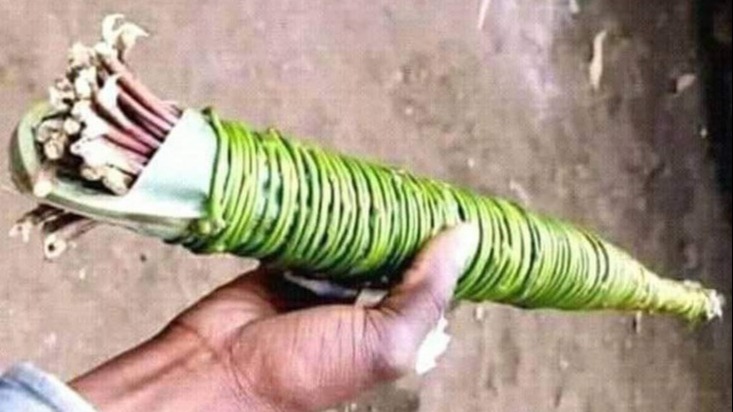
A bundle of fresh Miraa twigs, as has been offered in marriage proposals and peace talks for millennia.
Eastern Africa
Miraa's unique features yielded it a particular cultural significance in its host communities in Eastern Africa. Traditionally, its consumption was a ceremonial act permeated with spiritual meaning and reserved for special occasions: the preparation of marriages, peace talks, important business deals.
